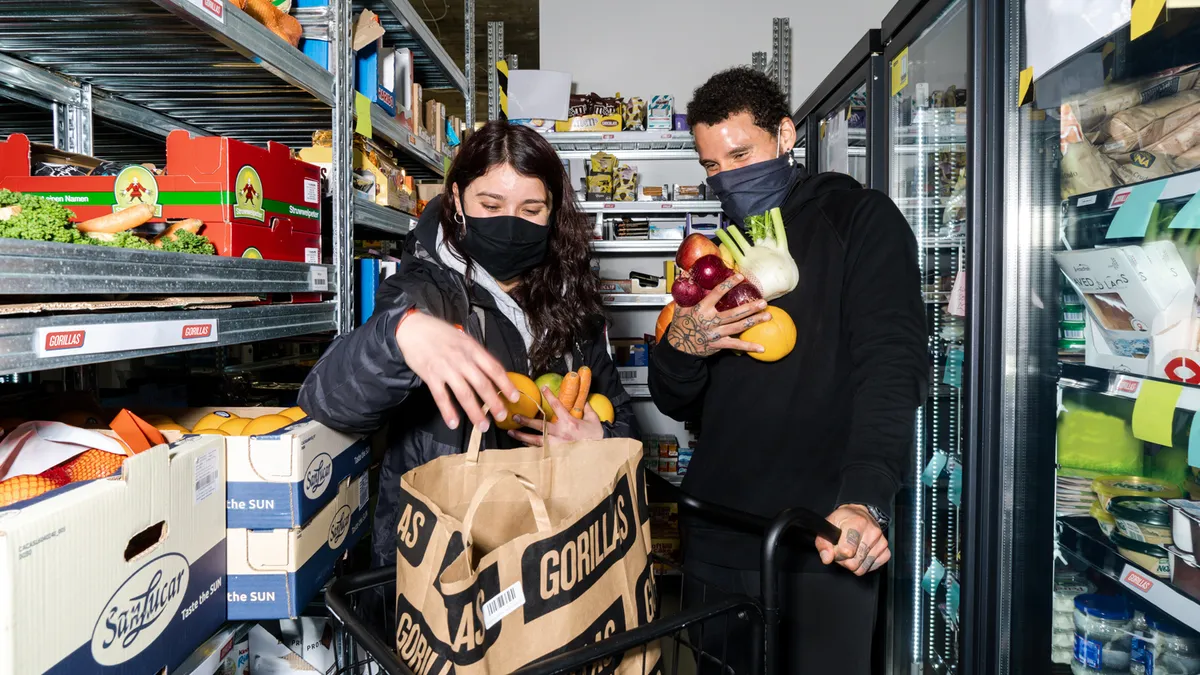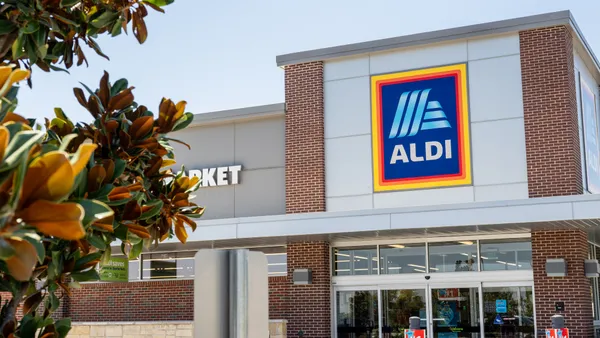Dive Brief:
- Ultrafast delivery startup Gorillas is pausing its U.S. expansion for the remainder of 2021 and will focus on building its business in New York City, the company said in a statement.
- Gorillas has also laid off an unspecified number of employees as part of the move. “This was a difficult decision to make but it was necessary to ensure the success of our operations in this market and achieve sustainable growth in the long term,” the Germany-based startup noted.
- The development comes as competing quick-commerce firms have entered the U.S. and are poised to reach additional markets in the country this year.
Dive Insight:
Gorillas declined to provide a reason for hitting the pause button on its U.S. expansion, but recent reports have noted that the German startup has struggled to raise funds, contended with worker protests in its home country and been advised to slow its expansion.
The news, which was first reported by Business Insider Germany, also presents a twist in the narrative for ultrafast delivery, which up until now has centered on breakneck growth. Startups fueled by pandemic demand have expanded throughout Europe and Latin America, burning through investor cash as they lay claim to a new market opportunity for rapid, impulse-driven grocery fulfillment.
Although Gorillas is only committing to pausing its U.S. expansion for a few months, that constitutes a lengthy period of time in the budding industry. Several firms have launched in New York City this year, and at least one has expanded to a new market. Zachary Dennett, U.S. co-founder at Jokr, said the company aims to open in several new U.S. cities, including Boston, by the end of 2021, while Getir, a Turkey-based company that pioneered the quick-commerce model, plans to be in New York, Boston and Chicago by the end of this year, CEO Nazim Salur said in a recent podcast interview.
According to a Financial Times report, Gorillas was in advanced funding negotiations with DoorDash this summer, but the deal ultimately faltered over “accountability” measures like the stipulation that Gorillas slow its growth in the U.S. — measures that some investors said “smacked of anti-competitive behavior,” according to the report. Gorillas, which raised $290 million this spring, has reportedly secured around $1 billion in new funding, including $200 million from European firm Delivery Hero.
Gorillas has tried to bolster its image as a company focused on responsible long-term growth. It recently hired a chief people officer as well as a chief operating officer with experience leading meal kit firm HelloFresh’s U.S. division. In its announcements, the company notes a focus on “sustainable” operations even as it rapidly scales.
Experts predict the glut of quick-commerce competitors will winnow down over time as firms falter and merge. Gopuff, a leading online convenience retailer in the U.S., has already acquired two European startups in the space. Companies will also be challenged by brick-and-mortar grocers like Kroger and The Giant Company that are launching 30-minute delivery services and adjusting their fees.










